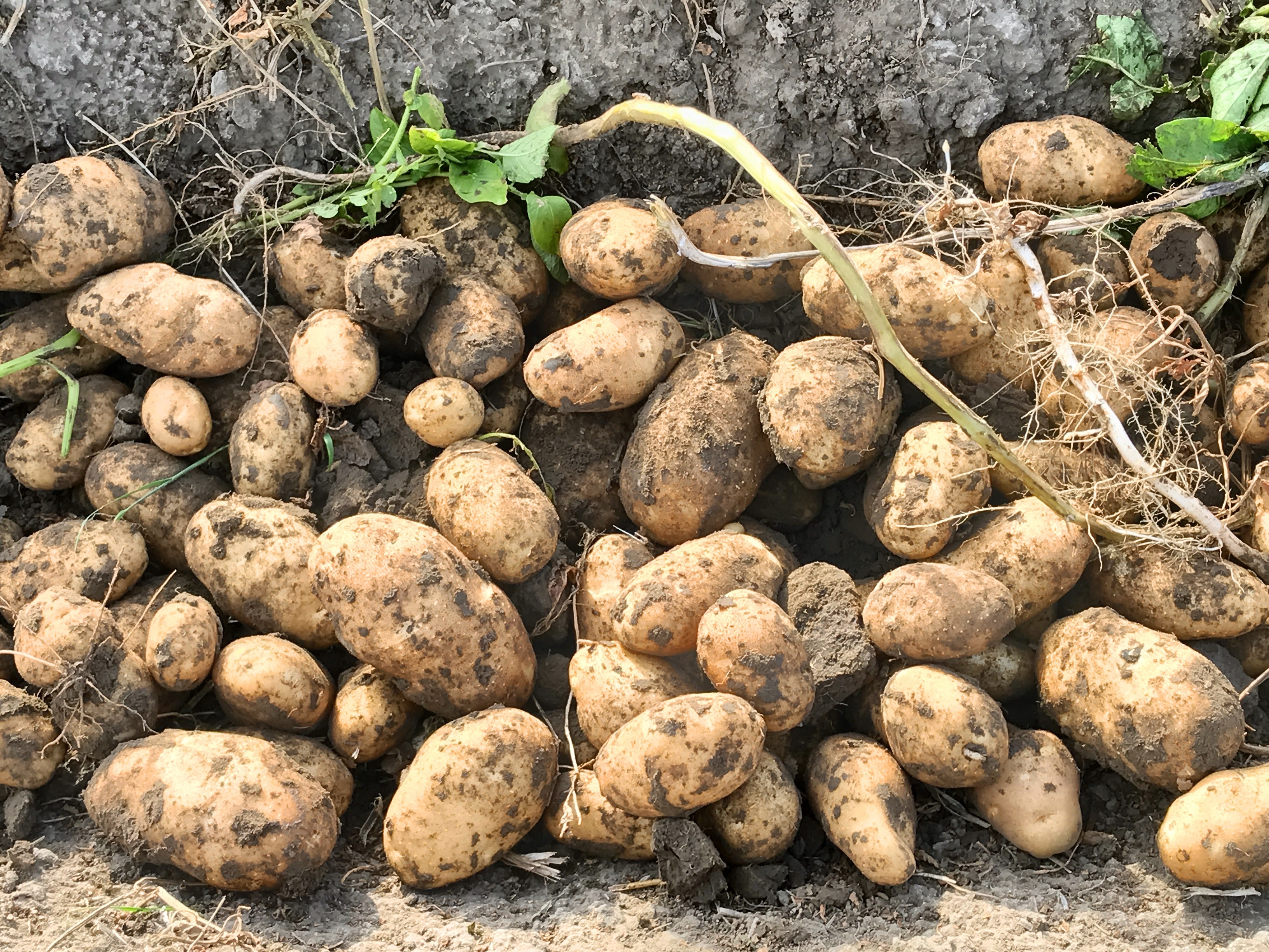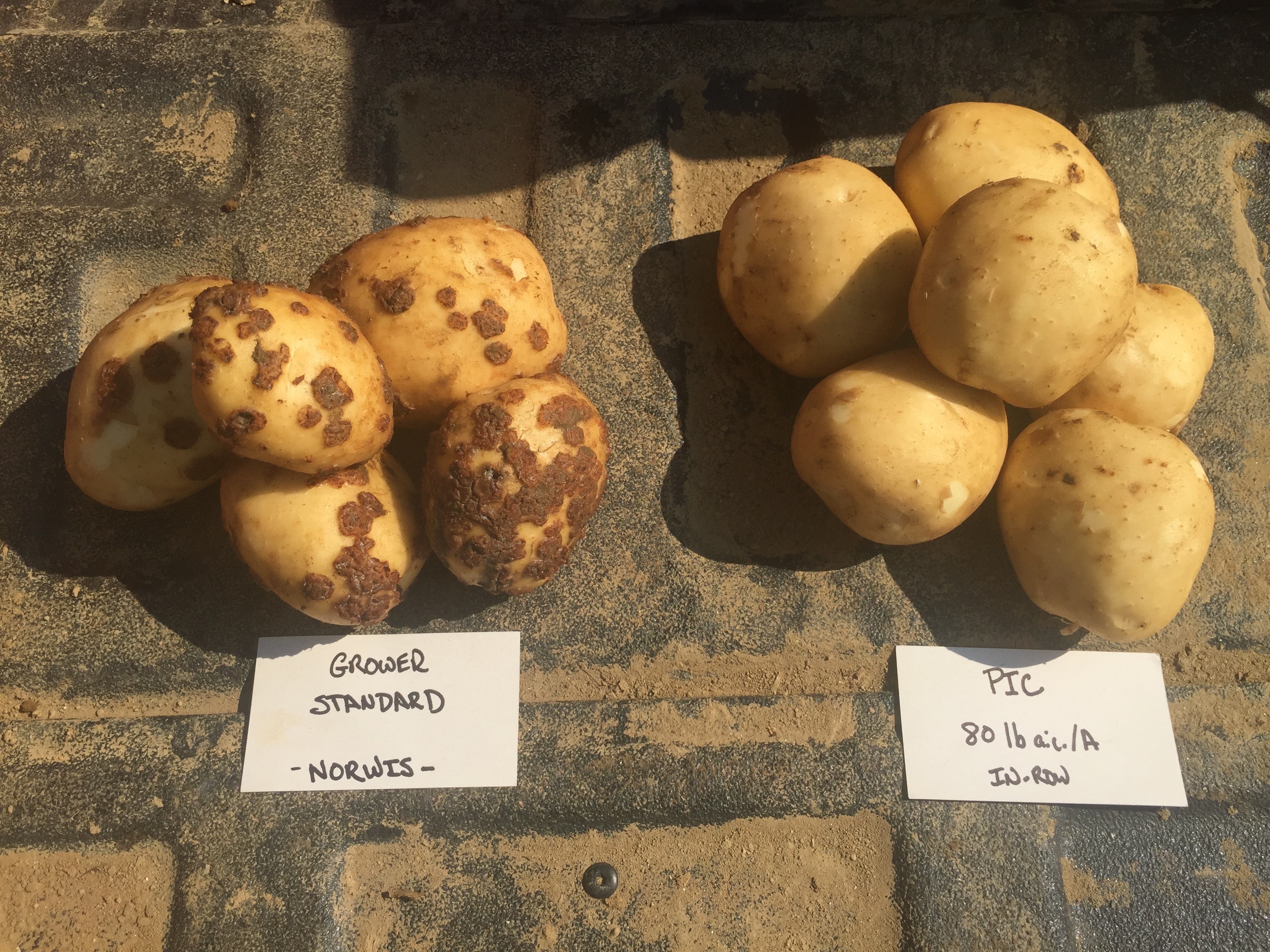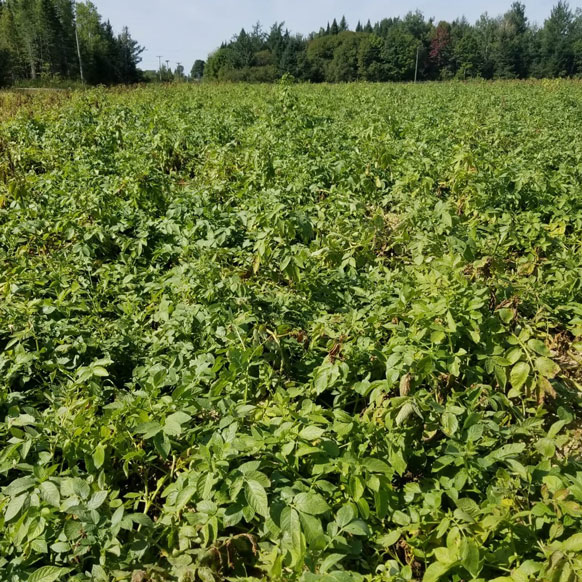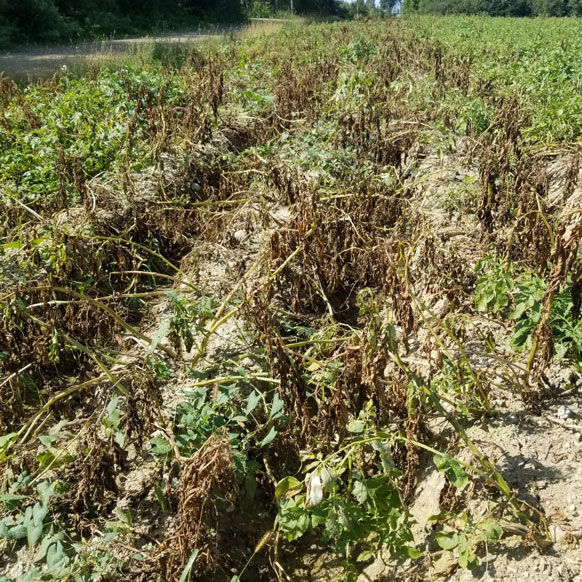CROP: Potato
No current practice in potato production provides more benefits than soil fumigation. Soil fumigation with Strike allows plant roots to develop in an environment where nematodes and other soil borne diseases are managed.
2022 Potato Trial Pacific Northwest: Trial Results
| Treatment | tons/ac | $/ton | Net ROI |
|---|---|---|---|
| Untreated Check | 25.4 | $223.40 | $- |
| 8 gal Strike 80 | 29.3 | $229.40 | $615.40 |
Trial Data
Untreated
| Untreated Check | Check 1 | Check 2 | Check 3 | Check 4 | Average |
|---|---|---|---|---|---|
| Tons Per Acre | 25.4 | 25.4 | 25.4 | 25.4 | 25.4 |
| Size | 69% | 65% | 59% | 48% | 60% |
| Bruise Free | 80% | 80% | 80% | 80% | 80% |
| Specific Gravity | 1.087 | 1.088 | 1.090 | 1.088 | 1.088 |
| Value Per Acre | $5,674.00 | ||||
| Value Per Ton | $223.40 |
Treated
| 8 gal Strike 80 | 8 gal: 1 | 8 gal: 2 | 8 gal: 3 | 8 gal: 4 | Average |
| Tons Per Acre | 29.3 | 29.3 | 29.3 | 29.3 | 29.3 |
|---|---|---|---|---|---|
| Size | 76% | 80% | 67% | 79% | 76% |
| Bruise Free | 80% | 80% | 80% | 80% | 80% |
| Specific Gravity | 1.087 | 1.089 | 1.087 | 1.085 | 1.087 |
| Value Per Acre | $6,721.40 | ||||
| Value Per Ton | $229.40 |
Benefits of Soil Fumigation:
Extensive, healthy root system
Larger tuber set
Earlier growth
Better utilization of nutrients
Requires less irrigation
Longer harvest window
Higher marketable yields
-
Less Potato Seed Needed
A potato is unique in that daughter tubers will grow as big as they have room to grow. A larger tuber set will require more spacing (typically 14” as compared to 10” between). This can lead to a 20% reduction in seed needed, which equates to roughly $100/acre savings by growing healthy plants.

Common Potato Diseases and Pathogens:
Lesion Nematode
Verticillium Wilt
Common Scab
Black Dot
Fusarium
Pythium
Phytophthora
Rhizoctonia spp
Collototricum spp


Potato Fields
Strike Treated

Potato Fields
Untreated